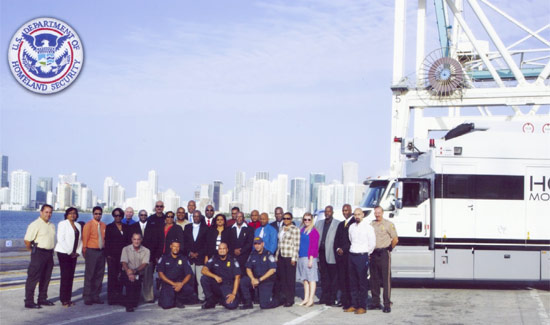
President Barak Obama has ordered the United States Congress to terminate the Turks and Caicos Islands from the list of countries that will be allowed to export products to the USA duty-free.
This essentially means that it will cost more to export items including fish and conch to the USA from January 1st, 2014, when TCI’s eligibility for trade benefits from the USA will come to an end.
In a directive to the Congress which was also posted on the White House website on Friday June 29th, Obama stated: “Pursuant to section 502(e) of the 1974 (Trade) Act, I have determined that it is appropriate to terminate Turks and Caicos Islands’ designation as a beneficiary developing country under the Generalised System of Preferences (GSP) program, because it has become a high income country as defined by the World Bank. Accordingly, Turks and Caicos Islands’ eligibility for trade benefits under the GSP program will end on January 1, 2014.”
Obama added: “If the President determines that a beneficiary developing country has become a “high income” country, as defined by the official statistics of the International Bank for Reconstruction and Development (i.e., the World Bank), then the President shall terminate the designation of such country as a beneficiary developing country for purposes of GSP, effective on January 1 of the second year following the year in which such determination is made.”Gibraltar, another British Overseas Territory, has also been struck from the list.
The U.S. Generalized System of Preferences (GSP) is a program designed to promote economic growth in the developing world by providing preferential duty-free entry for up to 5,000 products when imported from one of 128 designated beneficiary countries and territories.
The GSP program also supports US jobs. U.S. businesses imported $18.5 billion worth of products under the GSP program in 2011, including many inputs used in US manufacturing. According to a 2005 U.S. Chamber of Commerce study, over 80,000 American jobs are associated with moving GSP imports from the docks to farmers, manufacturers, and retail shelves. GSP was instituted on January 1, 1976, by the Trade Act of 1974.
Products that are eligible for duty-free treatment under GSP include: most manufactured items; many types of chemicals, minerals and building stone; jewelry; many types of carpets; and certain agricultural and fishery products. Among the products that are not eligible for GSP duty-free treatment are: most textiles and apparel; watches; and most footwear, handbags, and luggage products.
On October 21, 2011, President Obama signed legislation to reauthorize the GSP program through July 31, 2013.
The non-independent countries and territories are GSP-eligible beneficiaries are: Anguilla, British Indian Ocean Territory,Christmas Island; Cook Islands; Falkland Islands; Gibraltar; Heard Island and McDonald Islands; Montserrat; Norfolk Island; Pitcairn Islands; Saint Helena; Tokelau;Turks and Caicos Islands; British Virgin Islands;West Bank and Gaza Strip and Western Sahara.
The independent countries in the Caribbean that are GSP-eligible beneficiary developing countries (BDCs) are: Belize, Dominica, Dominican Republic, Grenada, Guyana, Haiti, Jamaica, St. Kitts and Nevis, St.Lucia, and St. Vincent and the Grenadines.
Under US trade laws, “graduation” from the duty-free status is the removal of a country’s GSP eligibility on the basis of factors related to national income or competitiveness. The President may remove a country from the GSP program because the country is sufficiently developed or competitive, or may suspend or limit the country’s access to duty-free treatment with respect to one or more products.
The per capita Gross National Product (GNP) limit for mandatory graduation is set at the lower bound of the World Bank’s definition of a “high income” country (which was $12,276 in 2011).
For circumstances other than mandatory graduation, the GSP Subcommittee normally reviews the country’s general level of development, its competitiveness in regard to the particular product, the country’s practices relating to trade, investment, and worker rights, and the overall economic interests of the United States, including the effect continued GSP treatment would have on the relevant U.S. producers, workers and consumers.
By: Hayden Boyce – Publisher & Editor-in-Chief
Turks & Caicos Sun



